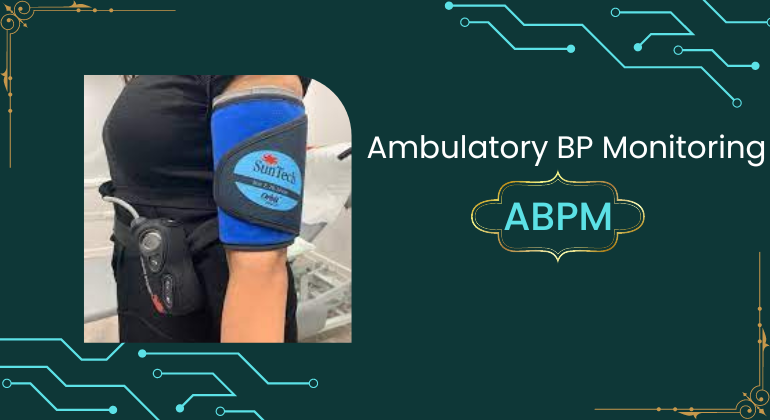
Twenty-four-hour ambulatory blood pressure monitoring (ABPM) is a way of measuring and managing high blood pressure (hypertension). It allows your blood pressure (BP) readings to be recorded over a 24-hour period, whether you’re awake or asleep. In most cases, readings are taken every 20 to 30 minutes during the day and every hour at night. Your heart rate can be measured at the same time.
During the procedure, BP readings are taken continually over a 24-hour period. You’ll wear a device that is about the same size as a portable radio. The device is attached to a belt or strap worn on your body. You’ll wear a bp cuff that is attached to the device around your upper arm. The cuff inflates at certain intervals throughout the day and night. After 24 hours, you can remove the device and bp cuff. These multiple readings are averaged over the 24-hour period. Changes in BP and heart rate, the BP distribution pattern, and other statistics are calculated.